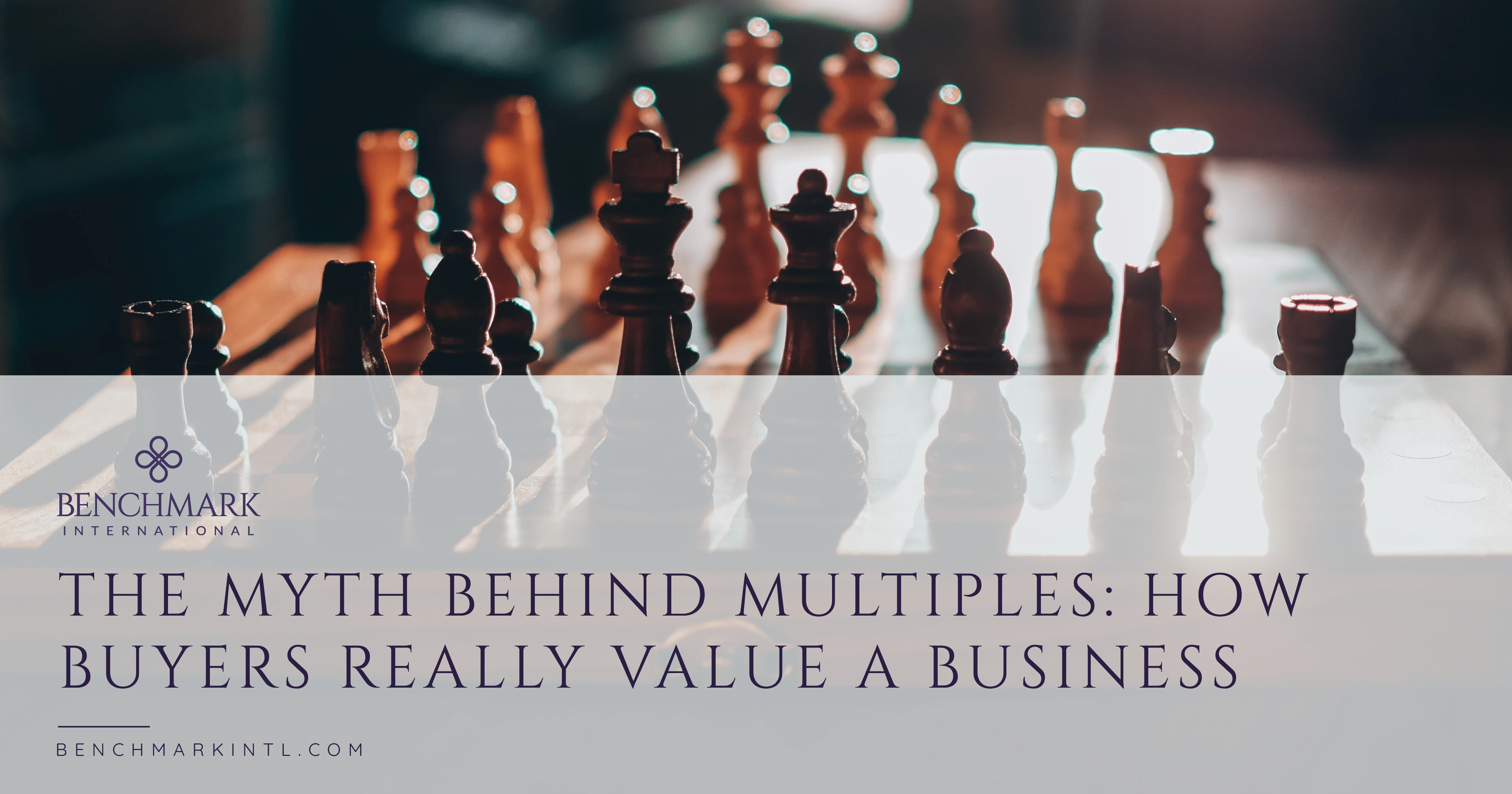
A topic common to the mergers and acquisitions market is the measure known as the business valuation multiple. This method determines a company’s value by its potential to earn in the future. It calculates a business’s highest value by assigning a multiplier figure to its current revenue. Multipliers differ based on the industry, economic climate, and other factors. There are a few ways in which multiples can be applied. Common multiple methods include:
Enterprise Value (EV)-Based Multiples:
These are used in M&A, where the whole of the company’s stock and liabilities are acquired.
- EV/Net Sales
- EV/Earnings Before Interest, Tax, Depreciation & Amortization (EBITDA)
- EV/Net Operating Profit After Adjusted Tax
- EV/Operating Free Cash Flow
- EV/Invested Capital
- EV/Capacity Measure
Equity Price-Based Multiples:
These are commonly used when investors acquire minority positions in companies.
- Private Equity Ratio
- Price/Cash Earnings
- Price/Book Ratio
- Prospective Average Earnings Growth Ratio
- Dividend Per Share/Share Price, Share Price/Sales Per Share
All of these multiple valuation methods offer their share of advantages and disadvantages. The reality is that valuing a company with accuracy is far more complicated than doing a basic math equation because of the different variables that must be factored in, and experienced buyers know this. Using multiples can be too simplistic. You can have two similar businesses that generate the same profits but have very different asset profiles and debt levels. A company that can offer value in addition to profits will command a higher sale price. This can be represented in areas such as real estate, leadership, and talent, proprietary technology, or lower risk. Multiples can also be too static and based on near-term forecasts to accurately assess the projected performance of the business.
There is no prescribed “right” formula for calculating the value of a company, but buyers tend to look at similar criteria when assessing a sale. Valuation methods can change based on the situation and buyer type. The four following aspects are generally always going to be in consideration by a potential acquirer:
- Revenue: How much your company generates in earnings each year is obviously a prominent factor in valuation, as well as the estimated earnings for the future depending on situations such as the industry climate, competition, or supply price changes. Some buyers in the U.S. will divide the current annual revenue by the long-term Treasury bill rate to put an upper limit on valuation. This method assumes the earnings will be the same year after year.
- Assets: This includes everything that the company owns, from equipment to property to inventory. A buyer will look at the books and the balance sheet to get an indication of the value of the assets and any liabilities. They will also be looking for how well the books are kept and how accurate the recordkeeping is. You cannot get an accurate valuation from inaccurate bookkeeping.
- The Market: The market in your sector can also affect the value of your company. A buyer will look at how it compares to similar businesses in your industry and geographic region that have recently sold. This can be tricky, as it is rare that two companies are exactly alike. It is also why the timing of a sale can be critical to the company’s valuation.
- Return on Investment: A buyer is going to want to know what they are going to get out of the business before they invest in it, and how long will it take to recover their investment—something that the current market can influence.
How a business is valued depends on what will happen to the business moving forward, such as whether it will be liquidated or will continue to operate. A business owner should never attempt to conduct his or her own business valuation. They are typically too emotionally connected to the company and lack the distance required in order to be objective. If you are considering selling your business, you should work with a professional to properly determine its valuation. They will not only be objective, but they may also combine different approaches to get you to your accurate number.
Ready to Sell?
We’re ready to help. Set up a time to speak with one of our M&A advisors and we will help you sell your company for the most value and create an exit plan that achieves your aspirations for the future.
Americas: Sam Smoot at +1 (813) 898 2350 / Smoot@BenchmarkIntl.com
Europe: Michael Lawrie at +44 (0) 161 359 4400 / Lawrie@BenchmarkIntl.com
Africa: Anthony McCardle at +27 21 300 2055 / McCardle@BenchmarkIntl.com
ABOUT BENCHMARK INTERNATIONAL
Benchmark International’s global offices provide business owners in the middle market and lower middle market with creative, value-maximizing solutions for growing and exiting their businesses. To date, Benchmark International has handled engagements in excess of $7B across various industries worldwide. With decades of global M&A experience, Benchmark International’s deal teams, working from 14 offices across the world, have assisted hundreds of owners with achieving their personal objectives and ensuring the continued growth of their businesses.
Website: http://www.benchmarkintl.com
Blog: http://blog.benchmarkcorporate.com
-1.png?width=2500&name=MicrosoftTeams-image%20(10)-1.png)
 Benchmark International
Benchmark International  Benchmark International
Benchmark International 





